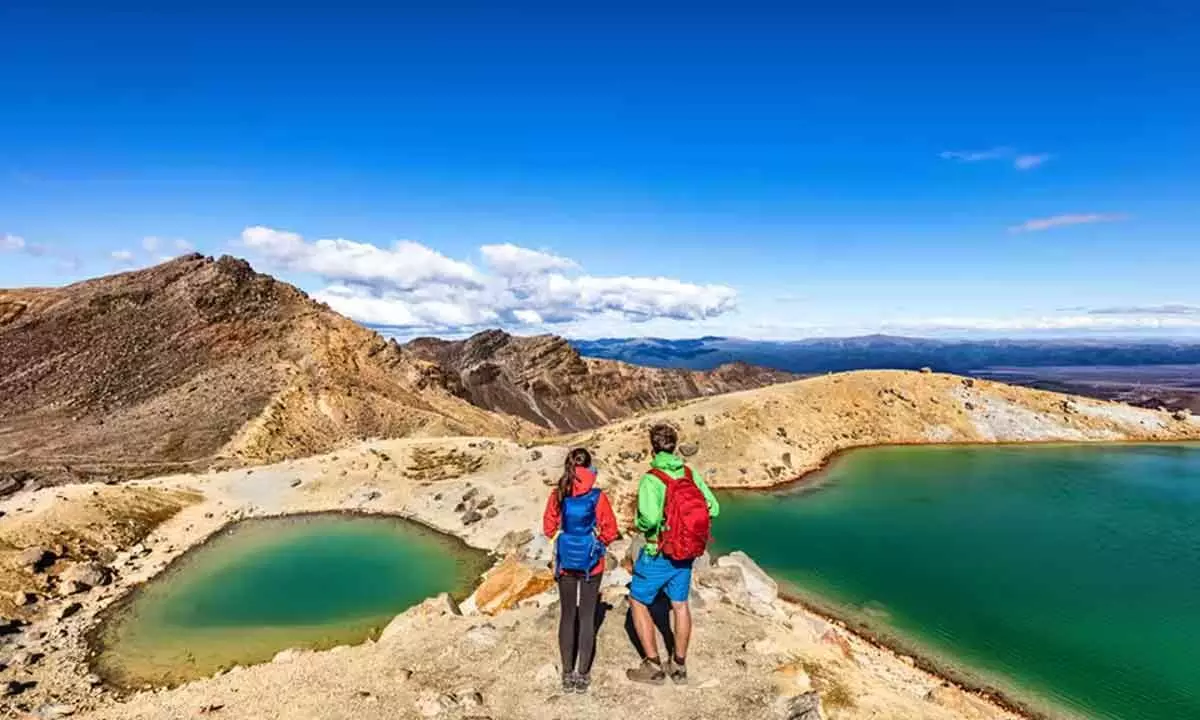New Zealand focussing on regenerative tourism to bring life back on track
The country has seen sharp fall in international visitors as a result of Covid-19
image for illustrative purpose

Transformational tourism deals with the important issue of how travel and tourism can change human behaviour and have a positive impact on the world. The focus is on human development in a world dominated by post-9/11 security and political challenges, economic and financial collapses, and environmental threats. It identifies various types of tourism that can transform human beings, such as educational, volunteer, survival, community-based, eco, farm, extreme, religious, spiritual, wellness, and mission tourism.
Industry Transformation Plans (ITPs) are a high-intensity, high-engagement approach to industry policy, with the purpose of setting a transformative vision and action plan for key sectors in the New Zealand economy.
Tourism was selected for an ITP because of its significance to the New Zealand economy, and because the loss of international visitors as the result of Covid-19, this gives an opportunity to rebuild a more regenerative tourism system. Funding for the development of the tourism ITP was included in the tourism communities: Support, recovery and re-set plan.
Tourism communities: Support, recovery and re-set plan
The tourism ITP will have an overarching objective of establishing a regenerative model of tourism. Regenerative tourism is about giving back more to people and places than it takes – meaning a tourism sector that adds more than only economic value. It actively enriches our communities and helps protect and restore our environment.
Seven other sectors are developing and implementing an ITP: Agritech, digital technologies, food and beverage, advanced manufacturing, forestry and wood processing, construction, and tourism.
Transformation plans for other industries have had to invest a lot of time in their early stages to define the issues and challenges in their sector. The tourism ITP will look a little different than this, as issues and challenges for the sector are well understood and many have been known for some time. The tourism ITP will build on the significant analysis that has already been done in the tourism space
The tourism ITP will, at first, be focused on enabling better work for the tourism and hospitality industry. Providing better work and opportunities for those to develop and grow in the tourism system, is a key part of creating a regenerative tourism system.
While Covid-19 has exacerbated challenges for the tourism workforce, the reality is that these challenges have been longstanding. The disruption of Covid-19, the immigration rebalance, and broader changes in the labour market present a unique opportunity for us to take stock and ask what we want for the tourism workforce of the future and what changes need to occur.
To make any transformational shifts in the tourism system, we must look at the foundation of the system – people. If we don't invest into this dimension, then we will struggle to achieve any other transformational shifts.
The tourism ITP will, at first will be focused on enabling better work for the tourism and hospitality industry. Providing better work and opportunities for those to develop and grow in the tourism system, is a key part of creating a regenerative tourism system.
For the tourism industry however, what matters is who is buying the good or service. The government defines 'tourism expenditure' as any spending that occurs more than 40km away from the purchaser's usual residence or place of work; regardless of what the good or service is. As a result, tourism cuts across a multitude of sectors. Tourism spending is most prevalent in the activities, entertainment, accommodation, hospitality, transport, and retail sectors.
There are proposals for transformation. McKinsey & Company sums up the changes in four points: Optimizing public-private interfaces through a tourism hub; experimenting with new funding mechanisms; ensuring transparent communication about protocols; enabling digital and data transformation within the tourism industry.
France is the world's leading tourist destination for more than 30 years. In 2019, 90 million international tourists visited France to discover our rich natural and architectural heritage and to enjoy our world-renowned hospitality and way of life. In France, tourism accounts for 8 per cent of GDP. This is transformation tourism at its best. This is thanks to millions of people, passionate about their jobs and their country, who uphold its excellent reputation day after day.
"Today, we want this position to mean greater benefits for all stakeholders throughout our territories. Increasing the length of stays, making it easier to get around, becoming the world's leading sustainable tourism destination and focusing on quality will be the essence of French tourism for the coming decade," says Jean-Baptiste Lemoyne, a senator in the government.

